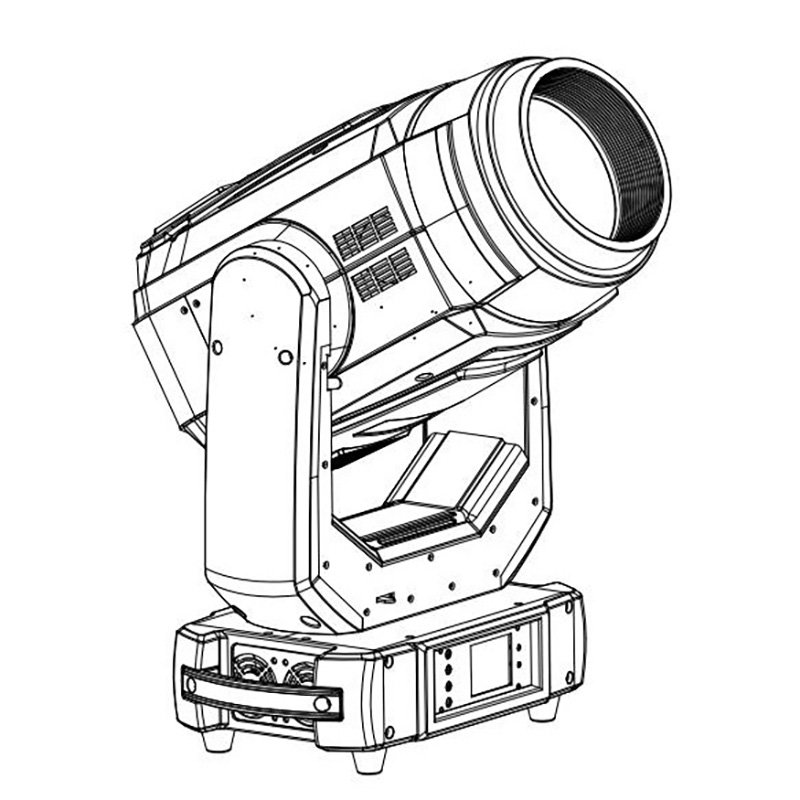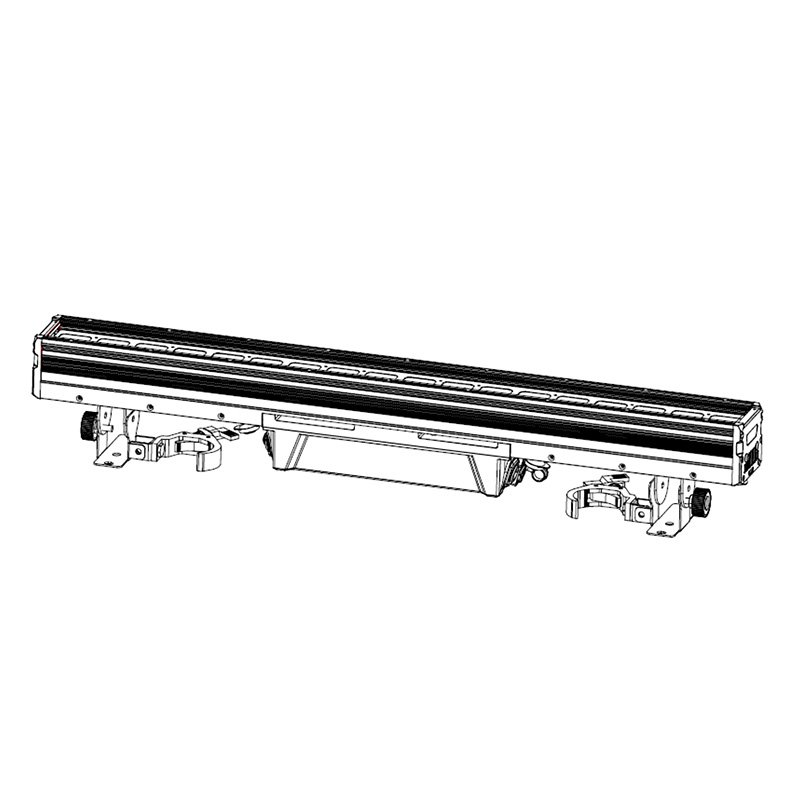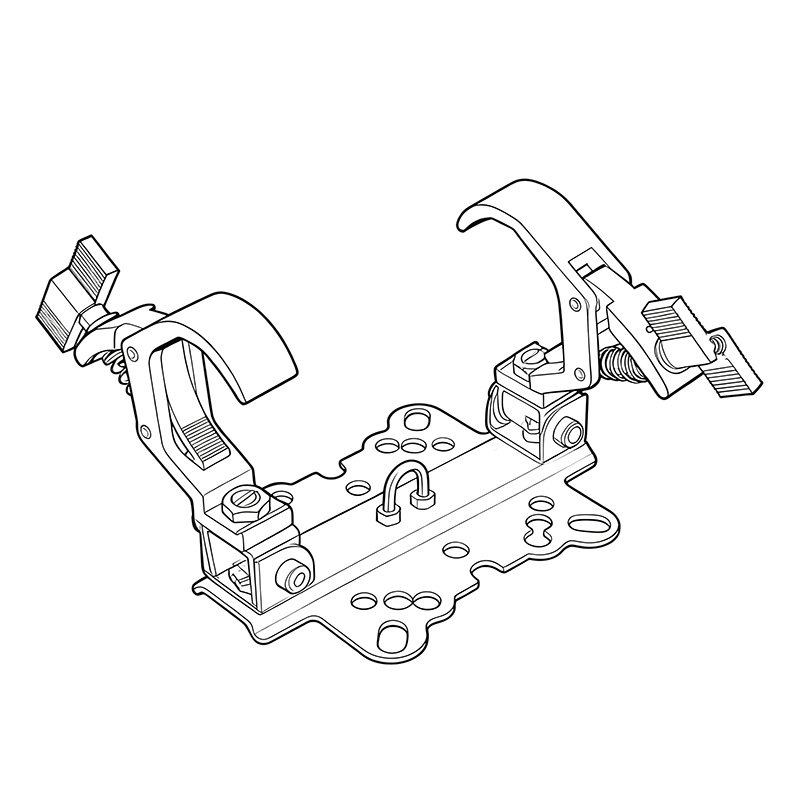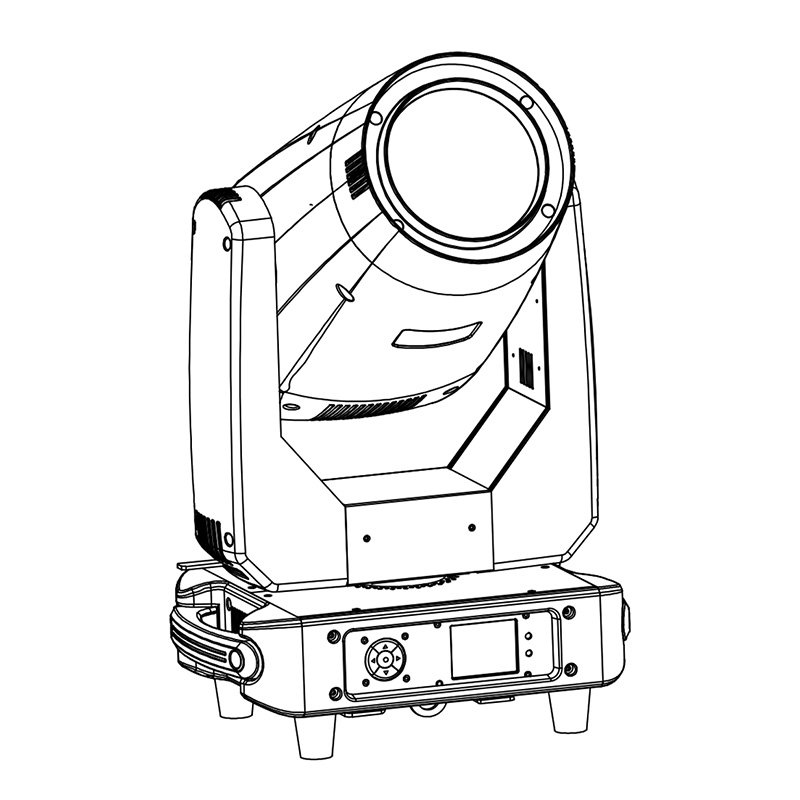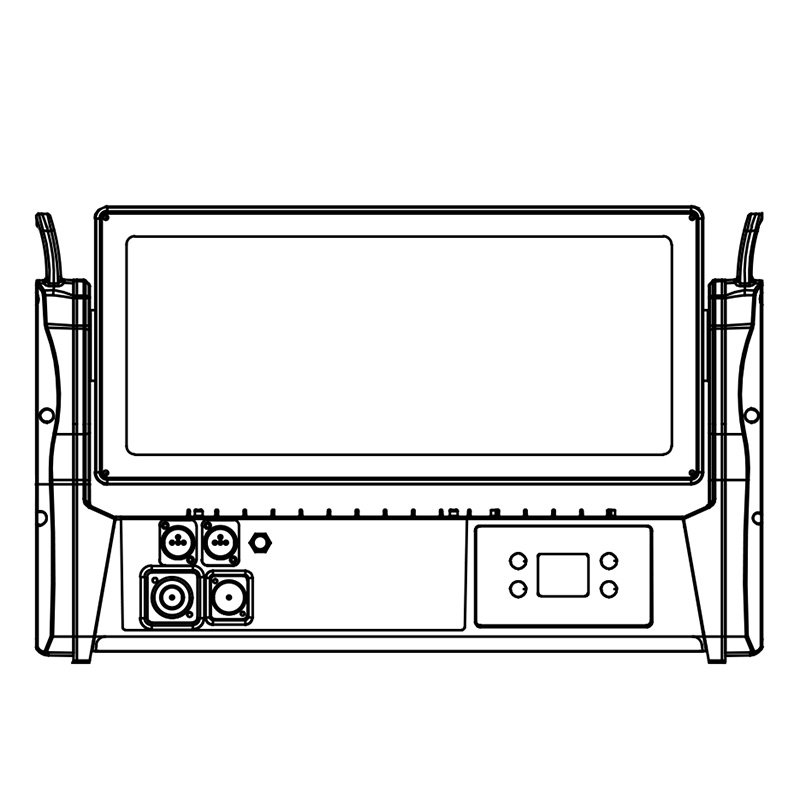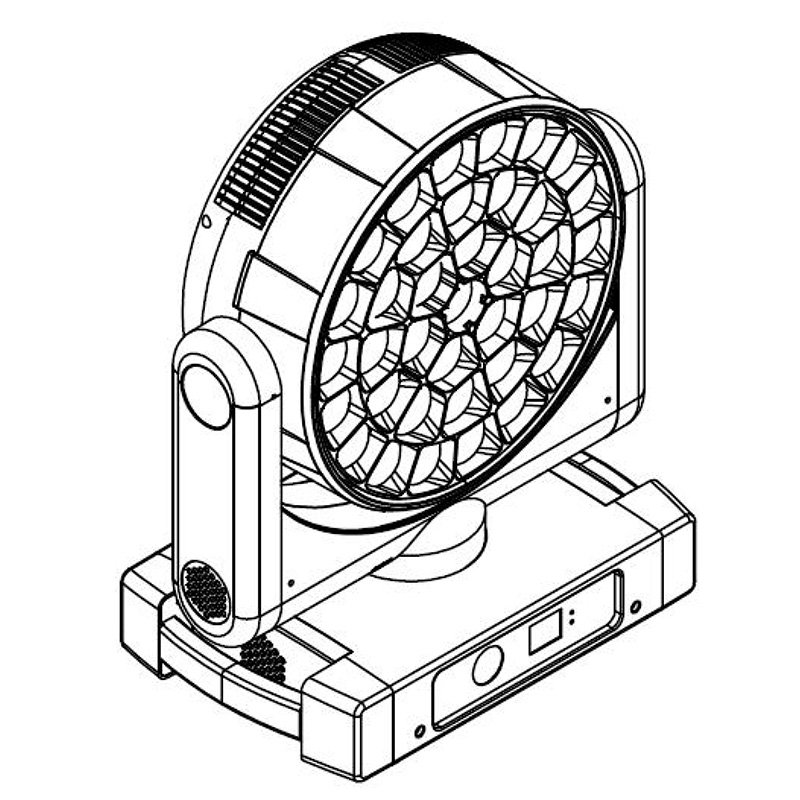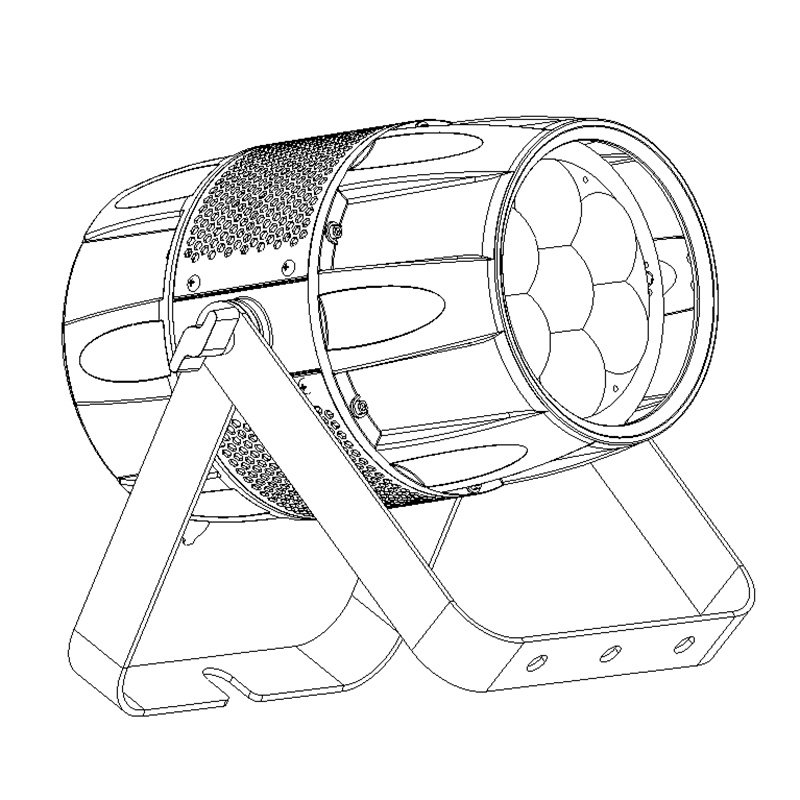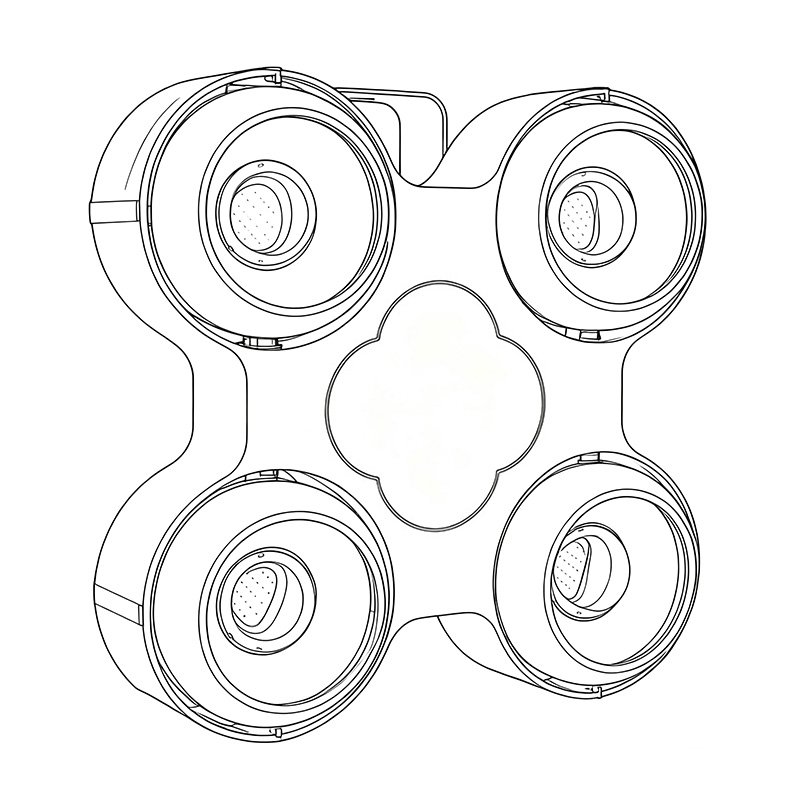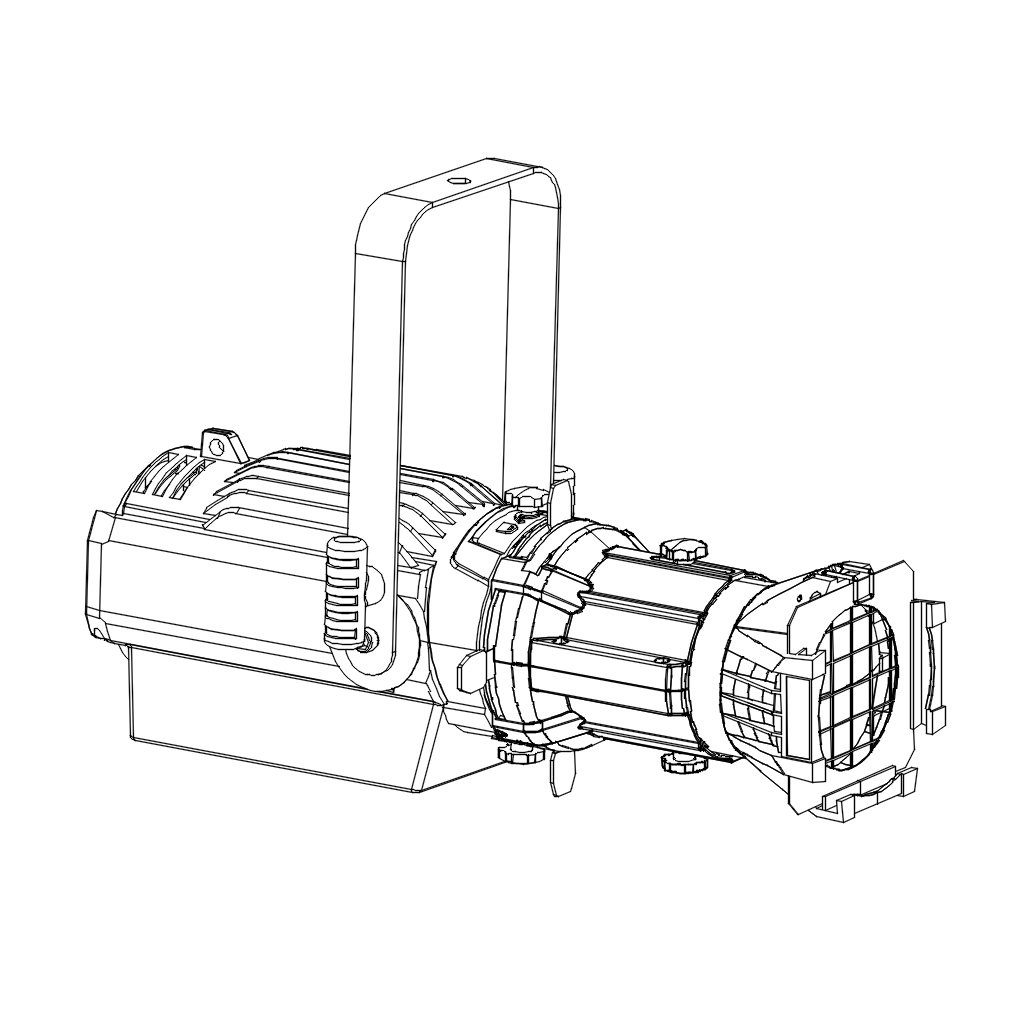How Can You Select the Best Stage Lighting Equipment Supplier?
Struggling with unreliable stage lighting suppliers causing delays and quality issues? Finding the right partner is crucial, but the process can be overwhelming, risking your reputation and profits.
Selecting the best stage lighting equipment supplier involves checking product quality (certifications like CE/RoHS), manufacturing capabilities (R&D ability, OEM/ODM), warranty, support, logistics reliability, and client feedback. Thorough evaluation prevents costly mistakes and ensures a smooth partnership for your events or distribution business.
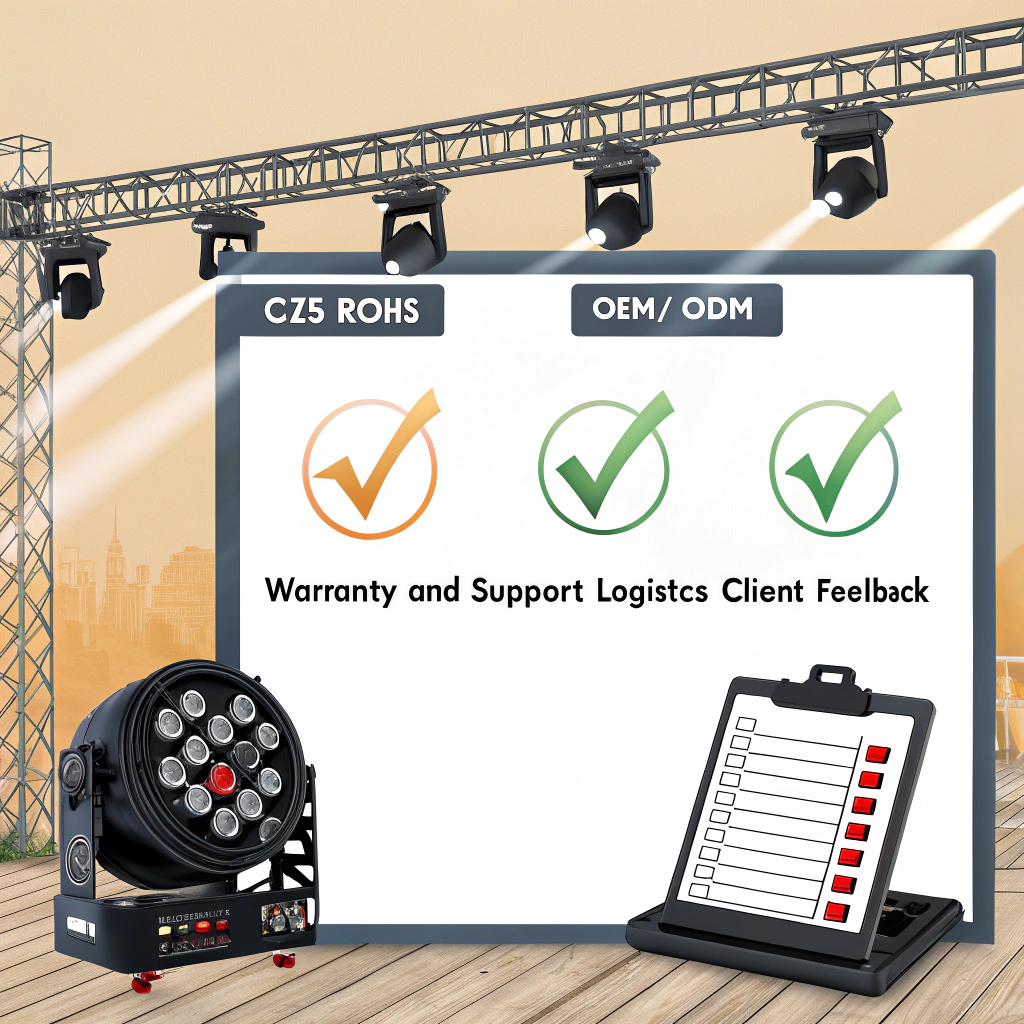
Choosing a supplier isn't just a transaction; it's building a relationship crucial for your success. Let's dive into how you can make sure you pick the right partner, avoiding common pitfalls many face in this vibrant industry. We'll cover everything from quality checks to understanding their support system.
Why Does Choosing the Right Supplier Matter So Much?
Worried about your event's success being ruined by faulty lights? A bad supplier can cause shipment delays, provide poor gear, and offer zero support, damaging your hard-earned reputation.
Choosing the right stage lighting equipment supplier matters because it directly impacts your event quality, budget, timeline, and brand image. A reliable partner ensures consistent quality, timely delivery, and dependable support, preventing costly setbacks and protecting your business's long-term success.
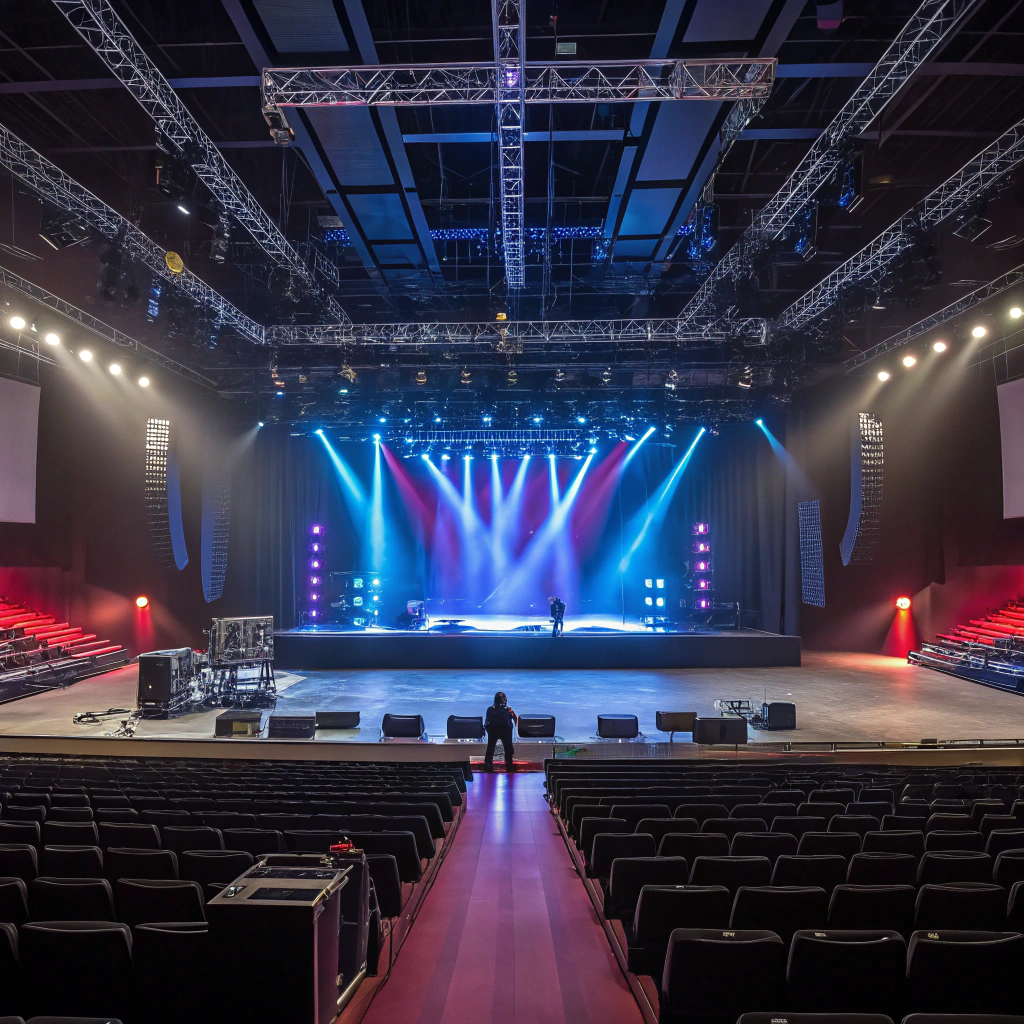
Think about the last incredible concert or theatre production you saw. The lighting wasn't just functional; it created the mood, highlighted key moments, and immersed the audience. That magic relies heavily on dependable equipment. Now, imagine the opposite: lights flickering during a crucial scene, colors being inconsistent, or fixtures failing mid-show. This is what happens when you partner with a subpar supplier.
I remember working with a company early in my career – let's call them "EventPros." They sourced lights for a major festival from a new, incredibly cheap supplier. Big mistake. Half the moving heads arrived late, and several failed during sound check. The stress was immense, and EventPros' reputation took a hit. They learned the hard way that cutting corners on suppliers costs more in the long run.
Here's a breakdown of the potential impact:
- Event Quality: Faulty or low-quality equipment leads to poor performance, technical glitches, and an unprofessional look.
- Financial Loss: Costs rack up from replacing faulty gear, compensating for delays, and potential damage to your client relationships.
- Reputation Damage: Consistent issues reflect poorly on your brand, whether you're a distributor, rental house, or event planner. Clients lose trust.
- Operational Headaches: Constant troubleshooting, dealing with returns, and managing supplier communications wastes valuable time and resources.
- Safety Concerns: Poorly manufactured equipment can pose safety risks (electrical faults, overheating).
Choosing a solid stage lighting equipment supplier isn't just about buying lights; it's about investing in reliability, peace of mind, and the ultimate success of your projects.
What Key Qualities Define a Reliable Stage Lighting Equipment Supplier?
Feeling unsure about what separates a great supplier from a risky one? Identifying key traits like quality control, service, and manufacturing skill is essential before committing.
A reliable stage lighting equipment supplier demonstrates consistent product quality (with certifications like CE/RoHS), strong OEM/ODM capabilities for customization, clear warranty terms, dependable after-sales support, and proven logistics reliability for timely deliveries. These qualities ensure a trustworthy partnership.
Finding a supplier you can trust involves looking beyond just the price tag. You need a partner who consistently delivers on multiple fronts. I've learned over the years that focusing on a few core qualities helps filter out the unreliable options quickly. Think of it like building a foundation – get these right, and the rest becomes much easier.
Let's break down these essential qualities:
Product Quality and Certifications
This is non-negotiable. The equipment must perform reliably and meet safety standards.
- Performance: Does the light deliver the specified brightness, color accuracy, and effects consistently?
- Build Quality: Is the casing durable? Are the connectors robust? Does it feel built to last the rigors of transport and use?
- Certifications: Look for internationally recognized certifications like CE (Europe) and RoHS (Restriction of Hazardous Substances). These indicate compliance with health, safety, and environmental standards. Suppliers serious about quality, especially for export markets like Europe and North America, will readily provide these. For instance, at Aolait, all our products are CE/RoHS certified because we primarily serve these demanding markets.
OEM/ODM Capabilities
If you need custom branding or unique product designs, these capabilities are crucial.
- OEM (Original Equipment Manufacturer): Can the supplier put your logo on existing products or packaging? Can they make minor modifications? This is vital for distributors building their own brand, like "Romano" from Italy building his "Cento Lighting" line.
- ODM (Original Design Manufacturer): Does the supplier have strong R&D? Can they take your concept and turn it into a real product, handling design, molding, and structure? This requires deep engineering expertise, like our engineers at Aolait with over 20 years in the field.
Warranty and Support
What happens if something goes wrong? A clear warranty and accessible support are vital.
- Warranty Terms: What is the duration? What does it cover (parts, labor)? Is the process for claims straightforward?
- Technical Support: Can you easily reach someone knowledgeable if you have setup issues or technical questions? Is support available in your time zone or language?
- Spare Parts: Can the supplier provide spare parts reliably and quickly?
Delivery Time and Logistics Reliability
Late shipments can derail entire projects.
- Lead Times: What are the typical production times? Are they communicated clearly and adhered to?
- Shipping Experience: Does the supplier have experience shipping to your country? Do they understand customs procedures and documentation? Can they handle different shipping terms (FOB, CIF, etc.)? Reliable logistics prevent costly delays and headaches.
Focusing on these qualities will help you find a professional stage lighting supplier that acts as a true partner.
How Can You Effectively Evaluate a Potential Supplier?
Overwhelmed by supplier options and unsure how to verify their claims? You need a systematic way to check their factory, products, and track record before making a decision.
Effectively evaluate a potential stage lighting equipment supplier by requesting product samples for testing, conducting a factory visit (or virtual tour), inquiring about their quality control and testing processes, and checking client references or reviews for real-world feedback.
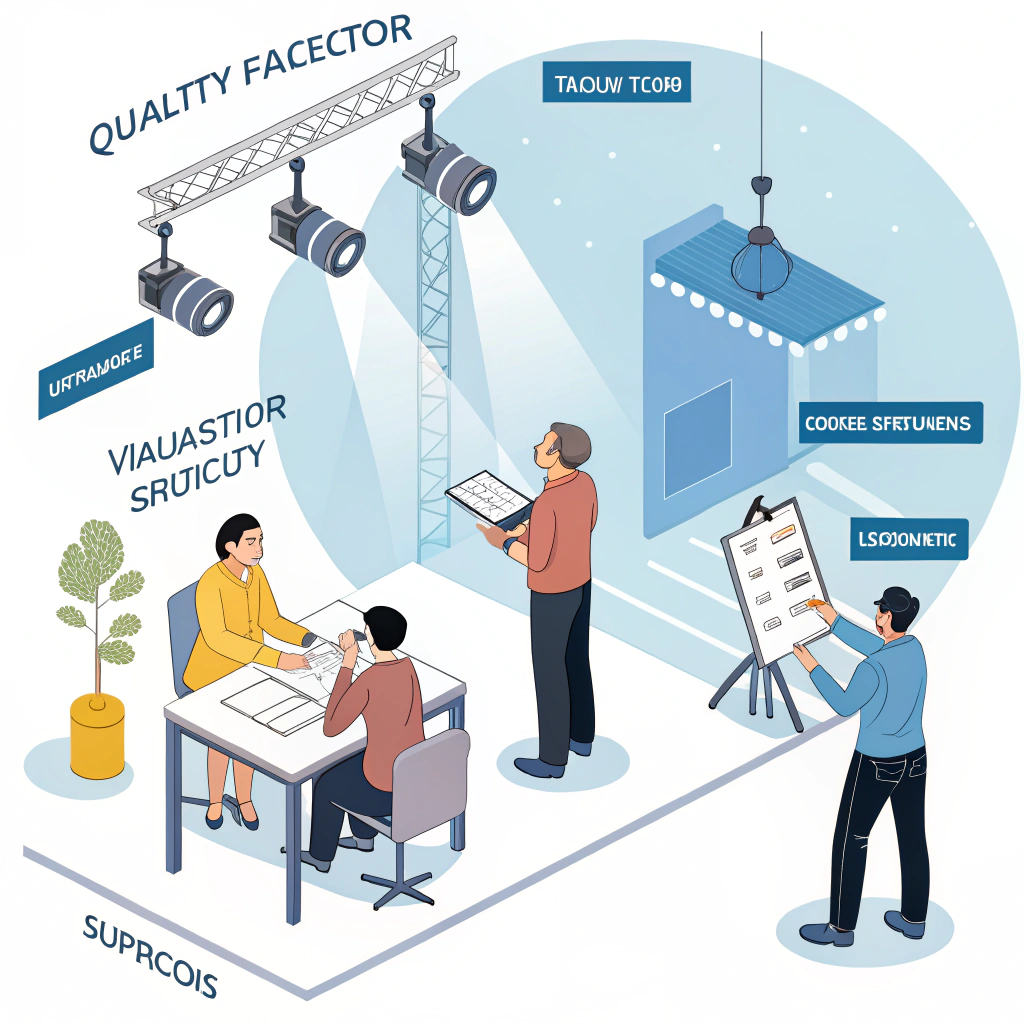
Choosing a stage lighting equipment supplier feels a bit like hiring a key team member – you need to go beyond the resume (or website) and really dig into their capabilities and reliability. Trusting marketing materials alone is risky. I always recommend a hands-on evaluation process. It takes a bit more effort upfront but saves massive headaches later. Think of it as due diligence to protect your investment and reputation.
Here’s a practical checklist I use:
Supplier Evaluation Checklist
| Evaluation Step | Action | What to Look For | Why It Matters |
|---|---|---|---|
| 1. Request Product Samples | Order 1-2 units of the specific lights you're interested in. If possible, order from multiple suppliers. | Build quality, performance consistency (brightness, color, effects), ease of use, packaging quality. Compare against competitor samples. | Hands-on testing is the best way to judge real-world quality and performance. |
| 2. Factory Visit / Virtual Tour | Ask to see their production facility, either in person or via a detailed video call. | Cleanliness, organization, production line capacity (like Aolait's 15 lines), testing areas, warehouse management, staff professionalism. | Verifies they are a genuine manufacturer, not just a trading company. Shows scale and process control. |
| 3. Inquire About Testing | Ask detailed questions about their Quality Control (QC) process. | Specific tests performed (aging tests - we do 48 hours, function tests, safety tests), documentation, QC team experience, defect handling process. | Demonstrates commitment to quality and reliability beyond basic certifications. |
| 4. Check References | Ask for contact information of existing clients (preferably in your region or market segment). | Honest feedback on product reliability, communication, support responsiveness, delivery punctuality, problem resolution effectiveness. | Real-world experiences offer unbiased insights into the supplier's actual performance. |
| 5. Assess Communication | Evaluate their responsiveness, clarity, and professionalism during your interactions. | Prompt replies, clear English (or your language), willingness to answer questions thoroughly, understanding of your needs. | Good communication is vital for a smooth long-term partnership, especially for OEM/ODM projects. |
| 6. Review Certifications | Ask for copies of CE, RoHS, or other relevant certifications. | Validity of certificates, scope of certification (which products are covered). | Confirms compliance with required standards for your market. |
This structured approach helps you move beyond surface impressions and make an informed decision based on evidence. Don't hesitate to ask tough questions – a good supplier will welcome the scrutiny as proof of their quality. Finding a reliable moving head light manufacturer or supplier for LED pars requires this level of detail.
What Red Flags Should You Avoid When Choosing a Supplier?
Tempted by an unbelievably low price or worried about vague promises? Recognizing warning signs early can save you from partnering with an unreliable or dishonest supplier.
Avoid stage lighting suppliers with unusually low prices (often indicating poor quality), vague or non-existent warranty terms, consistently poor communication or slow responses, and a lack of verifiable export experience, especially to your specific region or market.
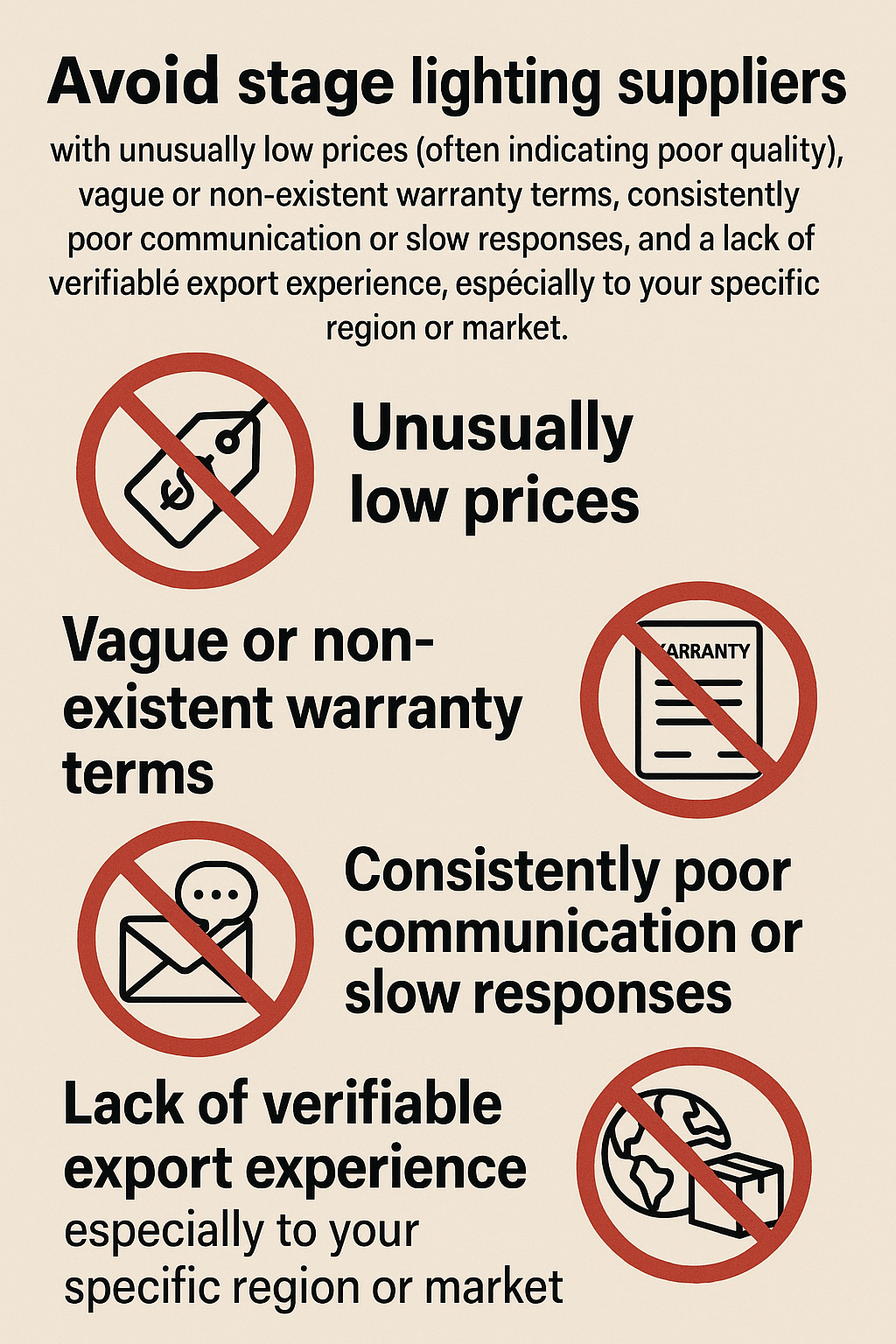
While searching for the best stage lighting brands or suppliers, it's easy to get lured in by attractive offers. However, some deals are too good to be true. I've seen businesses get burned by ignoring warning signs in their rush to save costs. Being aware of these red flags is crucial for protecting yourself from potential disasters. Think of it as navigating a minefield – knowing where not to step is as important as knowing where to go.
Here are some major red flags I always watch out for:
Unusually Low Prices
- The Issue: Significantly lower prices than competitors often mean compromises in component quality, manufacturing standards, testing procedures, or even worker conditions.
- Why Avoid: Leads to higher failure rates, inconsistent performance, safety risks, and ultimately costs more due to replacements and reputation damage. Quality components and rigorous testing simply cost money.
Vague or Missing Warranty & Support Information
- The Issue: Supplier is hesitant to provide clear written warranty terms, details on the claim process, or information about after-sales technical support.
- Why Avoid: Suggests they don't stand behind their product or won't be helpful when issues inevitably arise. You'll be left stranded with faulty equipment. A professional stage lighting equipment supplier will have clear policies.
Poor Communication
- The Issue: Consistently slow response times, vague answers, difficulty understanding your requirements, unwillingness to provide detailed information, or unprofessional language.
- Why Avoid: Communication is critical, especially for international trade and OEM projects. Poor communication now likely means terrible support and problem-solving later. It can also indicate a disorganized or understaffed operation.
Lack of Verifiable Experience or Transparency
- The Issue: Supplier cannot provide references, evidence of past shipments to your country/region, valid certifications, or is unwilling to allow factory visits/tours. They might be a new, untested entity or simply a trading company misrepresenting themselves.
- Why Avoid: Lack of proven experience, particularly in exporting, increases the risk of logistical problems, quality inconsistencies, and non-compliance with your market's standards. You need a partner with a track record.
High Pressure Sales Tactics
- The Issue: Supplier pushes aggressively for immediate orders or large commitments before you've completed your evaluation, often using limited-time offers that seem suspicious.
- Why Avoid: Reputable suppliers understand the need for due diligence. High pressure often masks underlying problems or is designed to prevent you from looking too closely.
Trust your gut. If something feels off, it probably is. Taking the time to find a transparent, communicative, and proven stage lighting equipment supplier is always worth the effort.
What Key Questions Must You Ask Before Signing a Deal?
Ready to commit but want to ensure everything is covered? Asking the right final questions clarifies expectations on customization, timelines, support, and problem resolution, preventing future misunderstandings.
Before signing, ask potential suppliers: Can you customize products/packaging (OEM)? What's your Minimum Order Quantity (MOQ) and production lead time? What technical support do you offer post-sale? How do you handle shipping damage or warranty claims?
You've done your research, evaluated samples, and maybe even visited the factory. You're close to selecting your stage lighting equipment supplier. But before you sign that contract or place a large order, there are a few crucial questions to ask. Getting clear, written answers to these helps set expectations and forms the basis of your agreement. I always make sure these points are crystal clear – it prevents so many arguments down the line.
Think of this as the final checklist before takeoff:
Essential Pre-Contract Questions:
-
OEM/Customization Capabilities:
- "Can you print our logo on the lights and packaging?"
- "Are there options for custom colors or minor feature modifications?"
- "What are the costs and processes associated with OEM customization?"
- Why ask: Essential for distributors like "Romano" building their own brand. Clarifies if they can truly meet your branding needs.
-
MOQ and Lead Time:
- "What is your Minimum Order Quantity (MOQ) for this product?" (Knowing options like Aolait's MOQ=1pc is useful for initial tests or smaller needs).
- "What is the estimated production lead time for an order of [Your Quantity] units?"
- "Does lead time change for customized orders?"
- Why ask: Crucial for planning inventory, project timelines, and understanding if their capacity fits your business model.
-
After-Sales Technical Support:
- "What kind of technical support do you provide after purchase?"
- "How can we contact support (email, phone, chat)?"
- "What are the typical response times for support inquiries?"
- "Is support available in English (or my language)?"
- Why ask: Determines the level of help you'll receive if you encounter issues during setup or operation. Good support saves time and frustration.
-
Handling Problems (Shipping Damage & Failures):
- "What is your process if products arrive damaged due to shipping?"
- "How do we file a warranty claim if a product fails within the warranty period?"
- "Who covers the shipping costs for warranty replacements or repairs?"
- "What is the typical turnaround time for resolving warranty issues?"
- Why ask: Defines how problems will be resolved. A clear process indicates a responsible supplier who stands by their product.
-
Payment Terms:
- "What are your standard payment terms (e.g., 30% deposit, 70% before shipment)?"
- "What payment methods do you accept (T/T, L/C, etc.)?"
- Why ask: Ensures financial terms are clear and acceptable for both parties.
Getting these answers upfront ensures alignment and builds a stronger foundation for a long-term partnership with your chosen professional stage lighting supplier.
Why Could Aolait Be the Right Choice For You?
Searching for a supplier with proven experience, quality focus, and flexibility? Aolait offers 10+ years of OEM expertise, strong QC, low MOQ, and reliable export history.
Aolait could be your ideal stage lighting equipment supplier due to our decade of manufacturing experience, focus on mid-high end quality with CE/RoHS certifications, flexible OEM/ODM services, low MOQ of 1 piece, and proven track record exporting globally, especially to demanding markets.
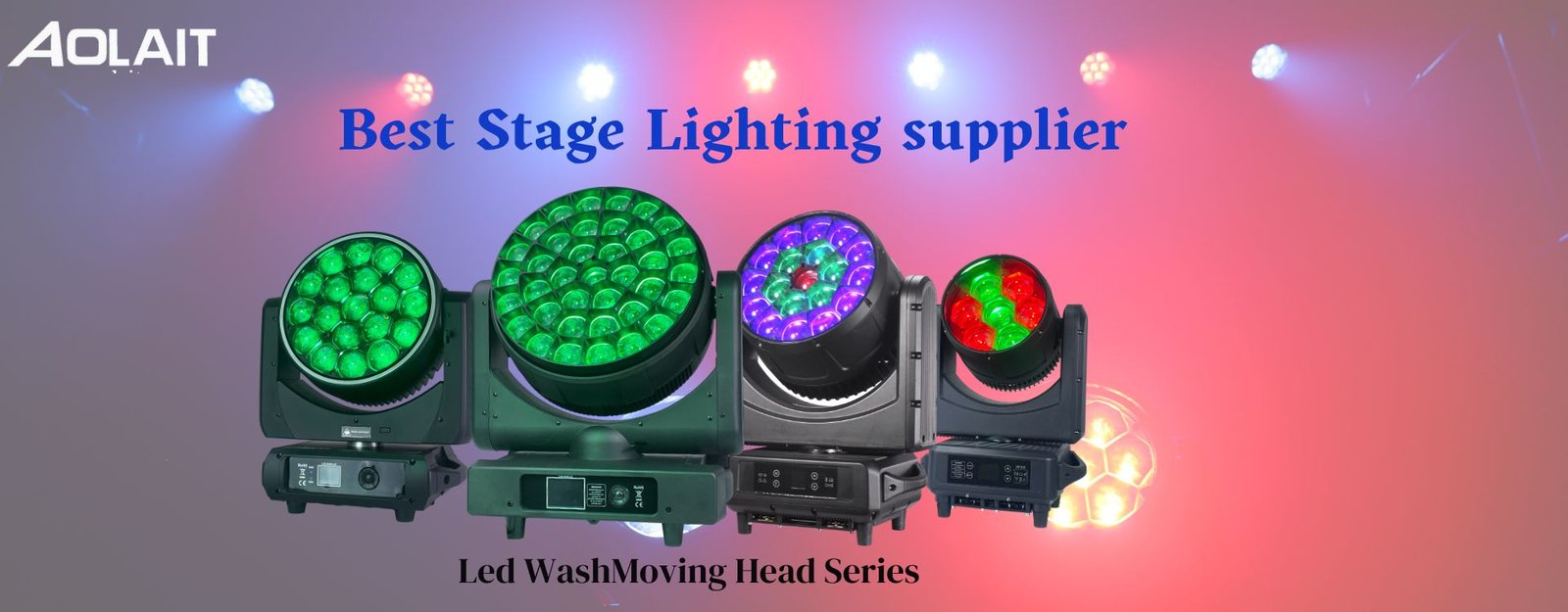
I know finding the right stage lighting equipment supplier is tough. You need quality, reliability, and a partner who understands your market. Having worked closely with Aolait, I've seen firsthand why many international clients, from distributors building brands in Europe to event companies in North America, choose us. We're not just selling lights; we're providing solutions built on experience and a commitment to quality.
Here’s what makes Aolait stand out:
- Proven Experience & Expertise: Established in 2013, we have over a decade focused purely on stage lighting. Our engineering team, with 20+ years in the field, understands the technology deeply and drives innovation, enabling effective ODM services from concept to reality.
- Quality Focus: We target the medium-high end market. This means using quality components and rigorous testing. Our 48-hour aging test before packaging is standard procedure, ensuring reliability out of the box. All products are CE/RoHS certified, meeting international standards.
- OEM/ODM Strength: We excel at helping clients build their brands. Need your logo on products or custom packaging? No problem. Have a unique product idea? Our experienced R&D team can handle ODM projects, including structure and mold design.
- Flexibility: We understand different business needs. Our Minimum Order Quantity (MOQ) starts at just 1 piece, allowing you to test products or fulfill smaller orders without huge commitments.
- Reliable Manufacturing: Our self-owned 2000 sq meter factory with 15 production lines produces 20,000-30,000 lights annually. This scale ensures capacity and consistency.
- Global Reach: We have extensive experience exporting worldwide, particularly to key markets like Korea, North America, Japan, Europe, and South America. We understand the logistics and documentation required.
We've built strong relationships with clients like branded wholesalers, AV rental companies, and production houses by consistently delivering quality products and reliable service. We aim to be more than just a supplier; we strive to be a dependable partner in your success.
Conclusion
Choosing the right stage lighting equipment supplier involves checking quality, support, and reliability. Evaluate samples, processes, and references carefully to ensure a successful partnership and flawless events.
Ready to find a reliable partner? Explore Aolait's professional stage lighting solutions or contact us today for a quote or sample request. Let's illuminate your success together!

